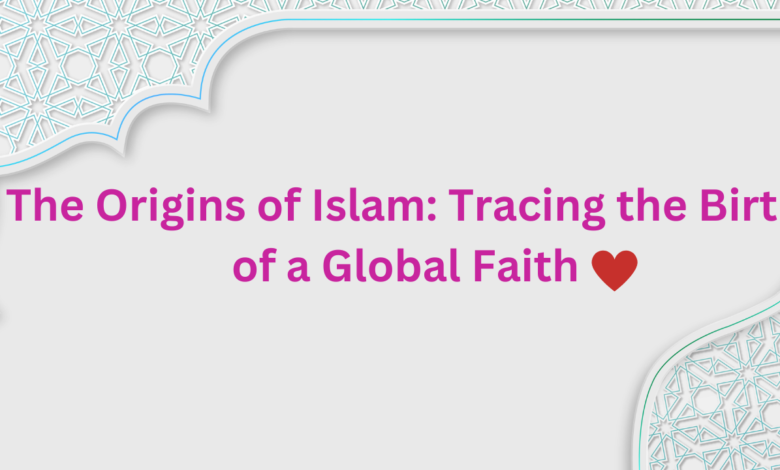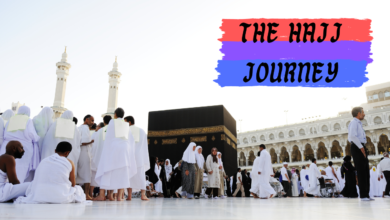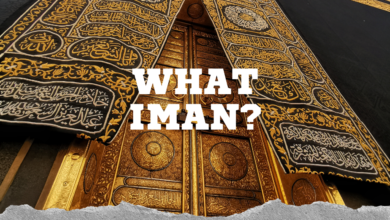The Origins of Islam: Tracing the Birth of a Global Faith

Introduction
Islam, one of the world’s major religions, has a rich and profound history that spans over 14 centuries. Its origins can be traced back to the early 7th century CE in the Arabian Peninsula. The story of Islam’s birth involves a series of events that transformed a region’s religious and cultural landscape, ultimately giving rise to one of the most influential faiths in human history.
The Pre-Islamic Arabian Peninsula
Before the advent of Islam, the Arabian Peninsula was a diverse and fragmented region with a multitude of tribes, each following its own religious and cultural practices. Polytheism and animism were prevalent among the Arabian tribes, and the worship of idols was common in various religious rituals.
Mecca, a city located in present-day Saudi Arabia, held significant religious importance as the center of Arabian paganism. The Kaaba, a cubic structure said to be built by the Prophet Ibrahim (Abraham) and his son Isma’il (Ishmael), contained numerous idols and was considered a sacred site for pilgrimage.
The Life of the Prophet Muhammad
The emergence of Islam can be attributed to the life and teachings of the Prophet Muhammad (peace be upon him). Born in Mecca around 570 CE, Muhammad grew up as an orphan and later became a successful merchant. At the age of 40, during a period of deep spiritual reflection, he began receiving revelations from God through the Angel Gabriel.
Muhammad’s revelations emphasized monotheism, calling for the worship of the one true God, Allah, and rejecting the worship of idols and other deities. He began preaching these messages, which later formed the basis of the Quran, the holy book of Islam. Muhammad’s teachings emphasized compassion, justice, and the importance of social welfare.
The Migration to Medina
As Muhammad’s message gained traction, it faced fierce opposition from the leaders of Mecca, who perceived it as a threat to their traditional polytheistic beliefs and economic interests tied to the pilgrimage. In 622 CE, Muhammad and his followers migrated to the city of Yathrib, later known as Medina, where he was welcomed by various tribes and established a pact among them, including the Jewish community.
This migration, known as the Hijra, marked a turning point in the development of Islam and is considered the beginning of the Islamic lunar calendar. In Medina, Muhammad continued to spread his teachings, and the Islamic community grew stronger, eventually gaining enough support to challenge the Meccan leaders.
The Conquest of Mecca and Establishment of Islam
In 630 CE, Muhammad and his followers returned to Mecca, now a formidable force. Rather than seeking revenge, Muhammad forgave the Meccans and emphasized a message of compassion and unity. The idols in the Kaaba were removed, restoring the site to its original purpose as a place of monotheistic worship.
The conquest of Mecca marked the triumph of Islam in the Arabian Peninsula and led to the rapid spread of the faith across the region. Over the next decade, Muhammad’s teachings and the Quran continued to guide the expanding Muslim community, establishing a unified moral and legal framework.
Legacy and Global Spread of Islam
Following the death of Prophet Muhammad in 632 CE, the early Muslim community faced internal challenges in choosing a successor, leading to the division between Sunni and Shia branches of Islam. Despite this division, Islam continued to spread rapidly throughout the Middle East, North Africa, and beyond.
Muslim scholars played a crucial role in preserving and advancing knowledge in various fields, including science, mathematics, medicine, philosophy, and arts, during the Islamic Golden Age (8th to 14th centuries). This period of intellectual flourishing significantly impacted the development of human civilization.
Conclusion
The origins of Islam can be traced back to the life and teachings of the Prophet Muhammad in the Arabian Peninsula. His message of monotheism, social justice, and compassion transformed the religious and cultural landscape of the region, leading to the birth of Islam. Today, with over a billion followers, Islam stands as one of the world’s major religions, shaping the lives of millions and leaving a lasting impact on human history






